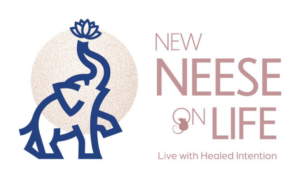It’s no secret that many people feel bad about themselves. In fact, self-loathing is so common that it’s almost considered normal.
But why do so many people hate themselves? We’ve all been there, some more than others. The occasional self deprecating spiral, as unpleasant as it may be, is pretty par for the course in the human experience. However, when the occasional night of self loathing with a pint of Ben and Jerry’s or Whiskey…or both…becomes the narrative of your life…well then we’ve got a problem that needs addressing.
Though this is not an exhaustive list by any stretch of the imagination, here’s a list of some of the usual suspects in the case of your own worst critic.
Imposter Syndrome
This is a condition that affects many people and can cause them to doubt their abilities and accomplishments. In this blog post, we will discuss imposter syndrome as well as other potential poisonous thought diseases and how therapy can help address these issues.
Imposter syndrome doesn’t only show up in our professional lives. Oh no no, it has a much further reach than that my friend. Here’s how it might show up in other areas of your life:
- “I know that So and So thinks I am funny, but they’re way out of my league for dating”
- “Everyone tells me I am a good mother, but they don’t see me all the time. They wouldn’t believe it if they really knew me”
- “No one in my family is successful, why would I be the first one to be? It’s just been dumb luck that I got this far.”
Some might look at this self dialogue is just being a “Negative Nancy” from time to time and in some cases that’s true.
However, this way of thinking can be incredibly harmful and lead to a lot of self-doubt, anxiety, and depression. It can prevent you from going after your dreams and living your best life. If you find that you’re thinking these things on the regular, it’s time to call in the big guns and go to therapy, or at the very least it’s time to have a Stuart Smalley moment. If you’re too young to get that reference, we can’t be friends. You should take a look at the link though, thank me later.
Undiagnosed ADHD
According to recent studies, undiagnosed ADHD is incredibly common, affecting over 50% of the population. That means that a huge portion of the population is living with a condition that causes them to feel constantly overwhelmed, inadequate, and struggling to manage the demands of everyday life without burning out. For these people, self-hatred is a natural response to feeling like they can’t meet society’s expectations.
Diagnosed or not, neurodivergent people have had to work twice as hard to keep pace with their neurotypical peers. If the person in question is undiagnosed or is diagnosed but undertreated, it’s common to have your identity oscillate between the cornerstones of struggle and self loathing. We’re tired and when we’re tired and we’re programmed to measure ourselves against standards not built for us, we’re going to fall down the rabbit hole of “life sucks and so do I”. This is why it’s so important to dig deep and be your own best advocate to get the care and support you deserve. This applies to other diagnoses and other neurodivergences as well. The more you know , the more power you have to address what’s in your way.
Inner Child Wounds/ Trauma
Trauma is another major contributing factor. Childhood trauma can cause feelings of worthlessness and insecurity that linger long into adulthood. And even if someone has never experienced trauma, they may still have unresolved issues from their childhood that cause them to feel bad about themselves. We are all products of our experiences, environments, cultures, and belief systems. On that I think we can all agree. But, can I ask you something? Those experiences and beliefs that shaped you as a child…what message did they send to you? For instance, if you came from a family where showing emotion was weaponized against you, what message did that send to you as a child? That emotions were dangerous to share and getting close enough to share them someone made you weak and vulnerable. If you were programmed to believe that love for you was contingent upon your ability to please everyone, what level of self loathing and anxiety bubbled below the surface of every interaction in your life?
Did someone have to come out and say that to you for you to learn that lesson? No. Does that make it any less impactful? Also no. Here’s my next question. If that was the message you received all those years ago, what experiences in your life made those messages stop or if we are being honest, are some still on repeat in the background noise of your life? How has repeating the old narrative served you in your life? How has it held you back? These are stones we don’t want to leave unturned if we want to live our lives to their fullest.
How New Neese on Life Can Help
In therapy, we will work on exploring the root of these beliefs. Once we identify the source of these beliefs, we can start to challenge them. We can work on building your self-esteem and confidence. Are you ready to see your worth and value with a new perspective? Together we can clean up the mess that self doubt left. It’s not too late to build your life to reflect who you really are and what you really desire and deserve. If during the process we discover that you’ve been on autopilot, guess what? You’re learning how to fly.
Because seeing is believing, check out our testimonial page to hear what people are saying about their new lease on life after working with New Neese on Life. We offer individual therapy services as well as therapeutic coaching and workshops.
Visit our site today to see how we can help you live with healed intention!
Click here for more information and if you’re ready to go ahead and book that consultation, we’re ready and waiting for you!

